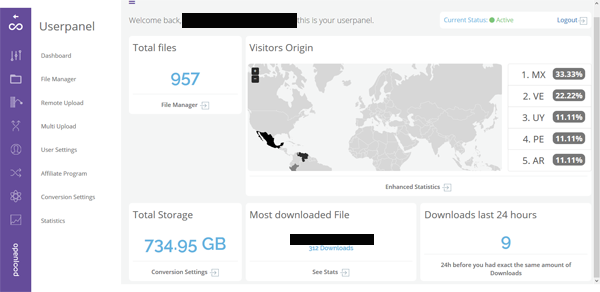EFF Backs Stream Rippers in Legal Battle Against Record Labels
vendredi 19 avril 2019 à 18:06 Last year, a group of prominent record labels filed a piracy lawsuit against the Russian operator of YouTube-ripping sites FLVTO.biz and 2conv.com.
Last year, a group of prominent record labels filed a piracy lawsuit against the Russian operator of YouTube-ripping sites FLVTO.biz and 2conv.com.
The labels hoped to shut the sites down, but this effort backfired.
In January, US District Court Judge Claude M. Hilton dismissed the case due to a lack of personal jurisdiction. The Court carefully reviewed how the sites operate and found no evidence that they purposefully targeted either Virginia or the United States.
The sites are not seen as highly interactive and their interaction with users could not be classified as commercial, the Court concluded.
The record labels didn’t agree with this conclusion and took the case to the Fourth Circuit appeals court. If the verdict stands, the companies believe that Internet pirates will have “carte blanche” to facilitate copyright infringement, as they would be untouchable by U.S. courts.
Tofig Kurbanov, the Russian operator of the two stream-rippers, argued against this last week, hoping to keep the current dismissal in place. Yesterday he received support from the Electronic Frontier Foundation (EFF) which submitted an amicus curiae brief.
The digital rights group takes interest in copyright cases, in particular when they get in the way of people’s ability to freely use technology. In this instance, EFF points out that the stream-rippers provide a neutral technology, that has plenty of legal uses.
“Like a web browser, photocopy machine, or video recorder, the converters at issue in this case are neutral technologies, equally capable of lawful and infringing uses. And lawful uses abound, from saving a copy of a family member’s home video to downloading clips from a TV show as raw material for a critical commentary,” EFF writes.
The digital rights group points out that companies such as the record labels in this suit, seek to control the use and availability of copying. To this end, they file lawsuits against foreign site operators who often don’t put up a defense.
This then allows them to apply for default judgments and broad preliminary injunctions which compel third-party intermediaries such as domain registrars, or CDN providers, to take action. That can be dangerous, EFF notes, as the merits of the case are not thoroughly considered.
“These injunctions, which can be legally problematic, are often granted
without challenge. Through this process, difficult questions about the scope of such injunctions go unanswered,” EFF notes.
While there have indeed been several default judgments in the past, that was not an issue in the present case. In fact, at this point, it’s irrelevant whether the sites at issue are infringing at all. The case was dismissed based on a lack of jurisdiction, after all.
According to EFF, the District Court made the right choice in doing so and it encourages the Court of Appeals to uphold this decision. Looking at the broader picture, this may act as a safeguard against default judgments in future cases, the group explains.
“Preserving the limits of personal jurisdiction to uphold due process, as the district court did in this case, also avoids default judgments against foreign defendants, and promotes the resolution of complex legal issues on a full record,” EFF writes.
Focusing on the jurisdiction issue in the case at hand, EFF notes that the court made the right decision. The sites’ terms of use do not constitute a commercial relationship and geo-targeted ads are not enough to establish jurisdiction, the group argues.
On top of that, the websites in question are not “interactive,” as the District Court also pointed out.
“Here, the websites at issue here are semi-interactive; as explained by the
district court, there is no evidence that users exchanged multiple files with the websites, and users do not need to create an account, sign in, or even register in order to use the websites,” EFF writes.
EFF is not the only outside party that has taken an interest in the case. The record labels’ previously attracted support from other major copyright holders. Through amicus briefs, Hollywood’s MPAA, The Association of American Publishers, and the Copyright Alliance, all argued that the verdict should be overturned.
It is now up to the Fourth Circuit appeals court, to weigh all arguments and ultimately come to a decision.
—
A copy of EFF’s Amicus Curiae brief in support of FLVTO.biz and 2conv.com and its operator is available here (pdf).
Source: TF, for the latest info on copyright, file-sharing, torrent sites and more. We also have VPN reviews, discounts, offers and coupons.


 This week Canadian news outlets are reporting about a supposed new legal campaign against people who pirate movies and TV-shows via BitTorrent.
This week Canadian news outlets are reporting about a supposed new legal campaign against people who pirate movies and TV-shows via BitTorrent. 

 The vast majority of filmmakers are not happy with online piracy. They would rather see people using paid platforms or services.
The vast majority of filmmakers are not happy with online piracy. They would rather see people using paid platforms or services.